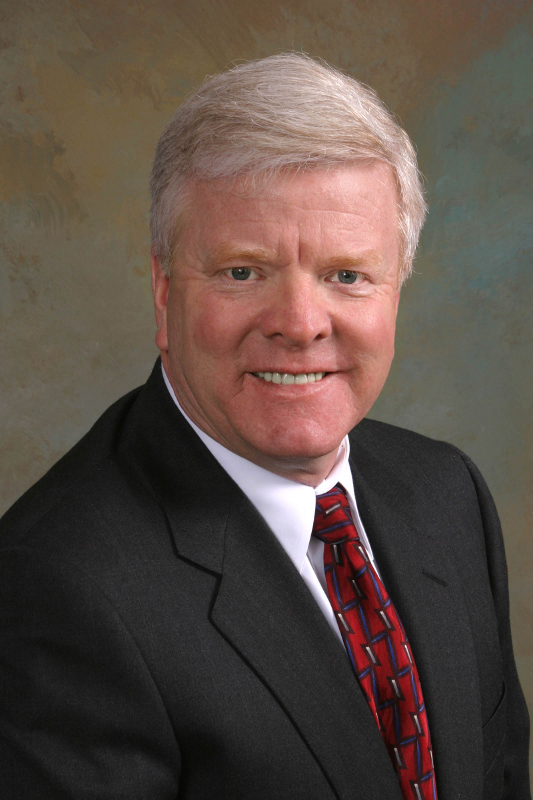Yesterday, Des Moines-based Iowa Health System changed its name to UnityPoint Health to better reflect the health system's efforts to transition into a patient-centered health delivery system where care is convenient, easy to navigate and focused on maintaining health. The system's tagline illustrates the goal behind the system's rebranding quite well: "Our vast network designed around one point. The Patient." Here, Bill Leaver, CEO of UnityPoint, discusses the name and branding change and the four years that have led up to the big reveal.
The following is an excerpted transcript of Mr. Leaver's interview with Becker's Hospital Review Editor in chief Lindsey Dunn.
Question: How long had Iowa Health System been considering a name change? What was the process for selecting your new name, UnityPoint Health?
We realized several years ago that doing care coordination well required physicians. About two and a half years ago we employed 700 physicians, but they were in nine different groups, each had its own name and culture. We began to combine those nine groups into a single physician enterprise, and in January 2012 we announced the single physician enterprise, but we didn't have a name for it. So, we had needed a name for the physician enterprise and were also looking to expand beyond Iowa. Not that the name Iowa Health was necessarily a drawback, but sometimes if you are talking to folks from other states, they would prefer we didn't have our state in our name.
We hired some outside help to help us do the research. We wanted to know: When people think about healthcare, what do they think about? What are they aspiring to get from their health system or their doctor? We found they want help navigating, they want easy access, they want help in coordinating care — the very things we're working on to really transform our delivery system.
We began researching names and used research in the field to get reaction to potential names. One thing we discovered is that all the good names are taken. People anticipate and trademark, and a lot of names were trademarked as drug names or by businesses, not necessarily health systems. It took a while to find a name that would resonate, but when we tested UnityPoint it seemed to resonate very well. I'm very confident the name will resonate with the pubic, and they will see the link between care coordination and the new name and how our brand aims to bring everything under one umbrella for the benefit of the patient.
Q: UnityPoint was chosen to reflect the idea that the patient is the unifying point within your vast network of hospitals and clinics. Can you talk about some of the efforts your system has made or is planning to reflect this?
BL: When we began this journey we fundamentally made a couple of assumptions and key determinations of how we were going to proceed. One was we felt the sole way to get to better healthcare at a lower cost was to make the patient and physician really the center of the delivery model, with care coordinating happening between the physician and the patient. We really want our physician enterprise to be the brand, and our physicians to be known for great care coordination — for me, that's how it all really fits together.
Another thing we're doing is integrating home care in primary care offices and making home care a much greater part of the team. Our advanced medical teams are individual teams of a home care nurse, physician, care navigator and maybe a dietician and pharmacist to help when a patient has chronic multiple diseases. For example, if a patient has multiple conditions and maybe dementia, the physician doesn't have the necessary time in the day to do care planning, so he or she could refer that patient to the advanced medical team who could do care planning for the patient and really get the patient stable and then refer back to the primary care provider. We've established advanced medical teams in every one of our regions, and they've been very well received by physicians and patients.
The other thing we are developing to assist our patients and physicians are really robust care analytics. Analytics I think will become very important going forward. Through our Pioneer ACO and other ACOs with Medicare and commercial payors, we have access to claims data, which allows us to have a very good idea of where our patients are going for care. Eventually we'll be able to anticipate in our primary care offices and say, 'here are the 5 percent of your patient population you better be focused on who are risk for hospitalizations, trips to the ED and so forth'. Then, we'll put in place intervention tools necessary to make this work.
The whole notion is moving from volume and fee-for-service to value. The more value we create, we think we'll get more volume because patients will want to come to our delivery system and want to come to our brand because of our physicians and because of our ease of access.
More Articles on UnityPoint Health:
Iowa Health to Become UnityPoint Health
Iowa Health System Graduates First Class From Its Physician, Management Leadership Academies


